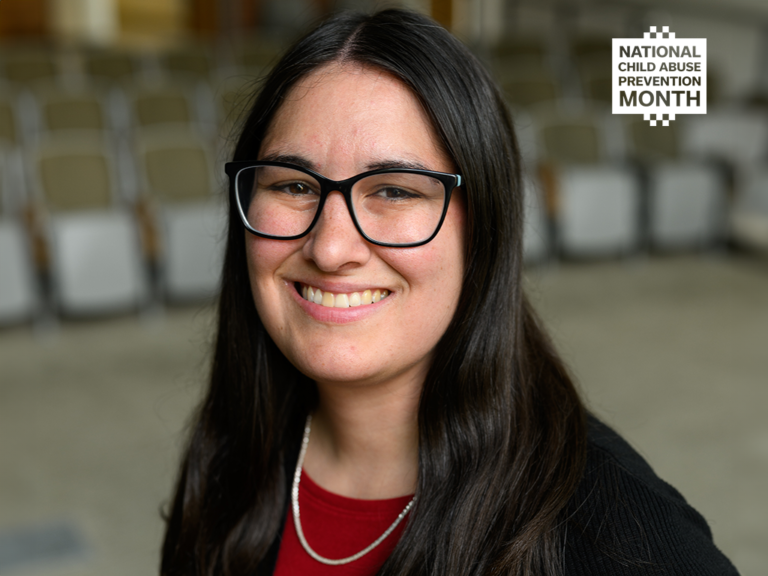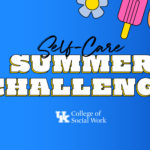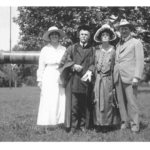During National Child Abuse Prevention Month, Tara Pulaski, program coordinator for the Citizen Review Panels (CRP) and Children’s Justice Act Task Force (CJA) took the time to answer a Q&A about how these programs support children and families in the Commonwealth.
CoSW: As the Program Coordinator for the Citizen Review Panels and Children’s Justice Act Task Force, share an overview of each program:
Pulaski: Kentucky has nine regionally based Citizen Review Panels (CRPs), providing coverage to the entire state. CRPs are grassroots volunteer groups that work to improve our communities for children and families, with an emphasis on child welfare. They tackle community issues from gun safety to foster care to substance misuse, with the ultimate goal of making Kentucky safer for our children. CRPs make a difference through their community projects and work in collaboration with the state to implement recommendations and change.
While CRPs are regional programs, the Children’s Justice Act Task Force (CJA) assists children and families statewide. The CJA Task Force is composed of child welfare professionals ranging from judges, lawyers, doctors, mental health professionals, social workers, and those with lived experience; they bring together their shared expertise to address and alleviate child abuse, neglect, sexual abuse, and exploitation in Kentucky.
CoSW: How do these two programs help children and families in the Commonwealth?
Pulaski: CRPs help local children and families by addressing the unique needs of their particular communities. Each CRP brainstorms the most crucial issues in their region related to child welfare, and then designs a project or strategy to help alleviate it. Since they are able to make yearly recommendations to the state, CRPs have the ability to enact widespread change. For specific examples, CRPs currently provide resources and trainings to caregivers, assist with the foster parent and placement shortage, provide food and goods to those in poverty, and more, to provide stable loving homes to children.
The CJA Task Force currently works with a grantee to improve the assessment and evaluation of child abuse cases in Kentucky in a way that limits trauma to children and families, which leads to better outcomes and removes barriers for seeking help. Additionally, they work with Western Kentucky University, who created evidence-based training modules for working with immigrant and refugee populations who experience child welfare system involvement. The goal of this project is to make sure all children and families are treated fairly, equitably, and in a culturally sensitive manner.
CoSW: What is your favorite part of working with these programs?
Pulaski: I love working with all the great volunteers! Our CRP and CJA members are extraordinarily dedicated to improving child welfare; that level of passion is certainly infectious. In a small way, I also feel like I am making a difference, which feels good.
CoSW: How does one join the CRP or CJA?
Pulaski: To join CRP, please email me at Tara.Pulaski@uky.edu! As long as you have some knowledge or connection to child welfare, we would love to have you. Our panels include social workers, foster/adoptive/kinship parents, community partners, lawyers, teachers, case workers, researchers, advocates, law enforcement, and more. For the CJA Task Force, members must be appointed by the Commissioner.
CoSW: During Child Abuse Prevention Month and every month, how can communities work together to serve children and families and provide families with the support they need?
Pulaski: Kentucky currently has a foster parent shortage, so that is immediately where my mind goes in terms of helping our child welfare system. Communities can also work together to give those in need a little assistance. Donate food or clothing, volunteer at community centers or non-profits, offer to babysit for free to give parents a break, give someone in need a ride, research resources for someone that might be unable, or just be a listening ear. These are all relatively small actions, but they can add up if everyone pitches in.
CoSW: What does Child Abuse Prevention Month mean to you and your work, and what are ways to take action to prevent child abuse in the Commonwealth?
Pulaski: Child Abuse Prevention Month hits close to home. My husband and I are adoptive parents, and we also have lived experience from our own childhoods. The month offers a time to reflect, but also a time to press forward with raising awareness and ensuring safe futures for all children. If you would like to take action, I suggest donating your time through volunteer work. I would also suggest educating yourself and others on child abuse and the warning signs. Education on parenting, child development knowledge, peer mentoring, and community resources for parents/caregivers can help prevent child abuse.
CoSW: How can we promote the social and emotional well-being of children and prevent child maltreatment within families and communities?
Pulaski: Right now, I see a mental health crisis in our state for both children and caregivers. All families—whether birth families, adoptive families, foster families, or kinship caregivers—need resources and support. We need to equip parents so that they can in turn help and equip their children. This of course will differ from family to family, but I see a need for mental health services for the entire family, education for caregivers, and concrete goods to help families make it. This could all help improve the well-being of children.
CoSW: Anything else you would like to share on Child Abuse Prevention Month?
Please don’t be afraid to get involved! You can make a difference for Kentucky’s kids. Though none of us can tackle preventing child abuse alone, we might be able to do something if we stick together.






